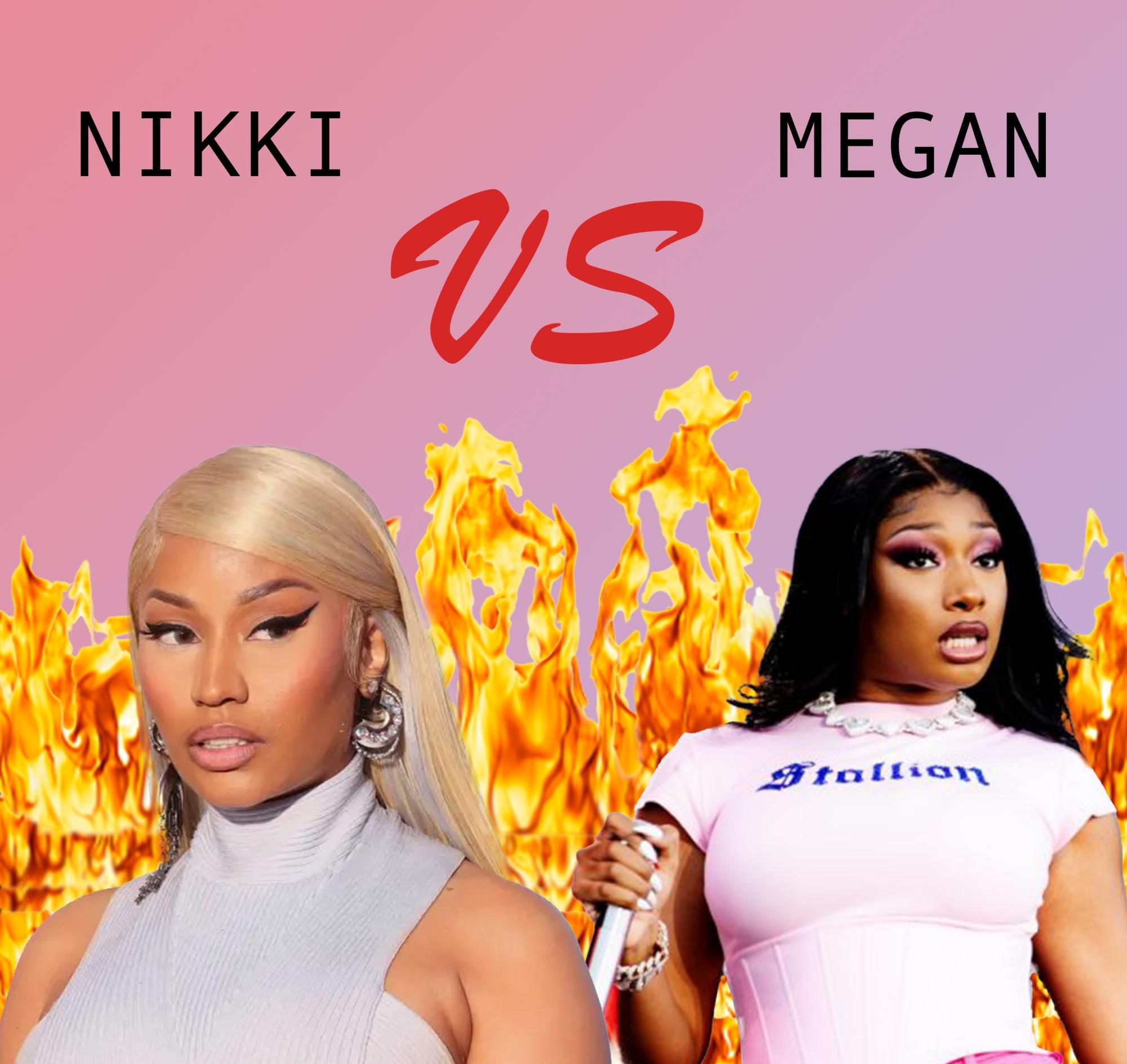Many artists have different motivations for writing songs, whether it be love, creativity, or personal storytelling, but recently, it has been seen that Megan Thee Stallion and Nicki Minaj have different motives: retaliation.
Released on January 26, Stallion’s song ‘Hiss’ sparked discussions between the two famous Rap’s It Girls, Stallion and Minaj.
The dispute reached its peak on January 29, after Minaj believed that Stallion’s new song, “Hiss” was making a reference to her husband Kenneth Petty, who has been convicted as a sex offender. She was quick to release “Bigfoot,”’ a “diss” song following the shoot to Stallion’s foot in 2020, and mocked the death of her mother.
However, this conflict allegedly started even before previously thought. When Minaj tried to have a baby, Stallion was thought to be incessantly encouraging her to drink alcohol or get an abortion if she was pregnant. However, Stallion has denied all allegations drawn by Barbz fans.
The conflict is highly driven by social media’s ability to spread news quickly, which can be seen as beneficial in spreading news and media, but in online conflicts, it can also increase the drama.
Nicki Minaj has gone on Instagram live, perceived to be drunk or high, several times to say “Three Grammys and you have to learn how to rap on the beat and being comfortable in the music,” then proceeded to mimic what appears to be Stallion.
Junior Helena Razi expresses that online anonymity can encourage users to comment on something they wouldn’t say in person, adding to the conflict.
“I’ve heard about the beef and I stand with Nicki Minaj because I’m a barb,” Razi said. “I think social media allows news to travel faster, thus making this clash more known to the general public. I think social media causes increased drama and tension as many people are anonymous and believe they can say anything online and support someone.”
The ongoing feud has also increased the tension in their respective fandoms, especially due to most retaliation occurring online.
“This situation has caused increased tension between the two fandoms and there may be a decrease in support for both sides depending on who you support,” Razi said. “Social media often dramatizes conflicts and involves people whenever possible and causes a lack of awareness and understanding of a situation as many people are quick to believe anything they hear.”
Social media only elevates the tension seen through the release of their new songs, calling each other out. On these platforms, fans are generally choosing to support their respective artists, while in some cases, are siding with the opposing artist. The outcome of this dispute will only unfold through time.





